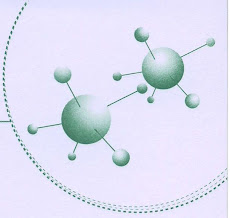What is Cholesterol?
Cholesterol and triglycerides are important fats for the body. Cholesterol is an essential component of cell membranes, and bile which helps the body emulsify and absorb fats and fat-soluble vitamins
The body uses cholesterolto make vitamin D and hormones such as oestrogen, testosterone and cortisol.
The body can produce all the cholesterol all the cholesterol that it needs, but we also get cholesterol from our food. Too much cholesterol in our bodies increases the risk of heart disease.
There are two main types of cholesterol in the blood :
- Low density lipoprotein (LDL) cholesterol - called the 'bad' cholesterol because it goes into the bloodstream and clogs up your arteries with fatty plaque deposits (atherosclerosis)
- High density lipoprotein (HDL) cholesterol - called 'good' cholesterol because it helps to take the 'bad' cholesterol out of the bloodstream and back to the liver to be broken down and excreted in bile
There's a simple rule of thumb - more HDL is good ; more LDL is bad.
Why do we get high Cholesterol?
Cholesterol levels may become abnormal because of changes that occur with Ageing, various disorders (including some hereditary ones), use of certain drugs, or lifestyle (consuming a high-fat diet, being physically inactive, or being overweight).
Cholesterol in the diet comes mainlyfrom saturated fats found in animal products (meat especially bacon and organ meat) as well crayfish, prawns, cheese, diary products, coconut and palm oils, margarine, butter adn fried foods. All foods from animals contain some cholesterol. Food from plants do not contain cholesterol.
Treatment and Herbal and Nutritional supplementsfor high Cholesterol
Changing your diet is important to lower cholesterol ; it decreases the amount of unnecessary cholesterol entering the body :
- Increase fibre to bind cholesterol and excrete it from the body - fruit, veges, legumes, barley, oats and oats bran, psyllium husks, flaxseeds
- Plant sterols, found naturally in plant food, can lower cholesterol levels.
Plants sterol enriched margarines may help to lower LDL cholesterol. - Avoid : animal products, fatty meats, organ meats, processed meats, deep fried food, cakes, biscuits, pastries, potato chips, processed an junk food, too much dairy, margarine
- Consume healthy unsaturated fats - raw nuts and seeds, fish, flaxseed oil, veges, olive oil for cooking
- Have fish at least twice a week
- Eat food that are good for liver - garlic, onions, beetroot, carrots, dandelion
- Reduce your alcohol intake to no more than 2 drinks per day and avoid binge drinking
- Don't smoke ; it increases the ability of LDL cholesterol to get into your cells and cause damage
- Exercise regularly - at least 30 minutes every day - it increases HDL and reduces LDL levels in the body, combats stress, keep the arteries in good condition to promote the flow of blood and utilises excess body fats to help lower cholesterol
FISH OIL (OMEGA 3)
Helps maintain a healthy and cardiovascular system
Assists in the management of cholesterol health
Helps maintain healthy triglyceride levels
Supports healthy blood pressure
When the omega 3 essential fatty acid is present in the body, cholesterol binds to it and is used for functions essential to the body - functions such as hormone and cell structure. When there is a deficiency of omega 3, cholesterol attaches to saturated fats instead adn forms cholesterol plaques on vessel walls (leading to atherosclerosis)
CO-ENZYME Q10
Low CoQ10 levels may be associated with ageing, smoking, cardiovescular disease and high cholesterol
CoQ10 is vital for energy production and heart muscle contraction and function
Helps maintain circulation and the health of arteries
Assists in the management of cholesterol health
Some cholesterol lowering medications decrease the body's production of CoQ10
GLOBE ARTICHOKE
Liver and gall bladder tonic
Helps maintain healthy cholesterol levels
Prevention of high Cholesterol
- A healthy lifestyle, eating plan and exercise (as mentioned under 'Treatment and Herbal and Nutritional supplements for high cholesterol')



.jpg)


